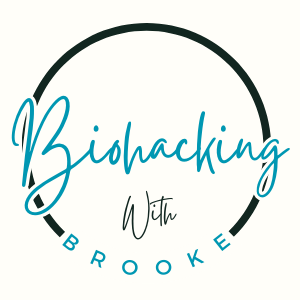Jetlag can throw your body out of sync, leaving you drained and foggy. But what if you could fight back? Biohacking offers practical ways to reset your internal clock faster, helping you adapt to new time zones like a pro. Whether you’re a frequent flier or prepping for a big trip, learning these simple tricks can make all the difference. Say goodbye to sluggish mornings and sleepless nights—your next flight doesn’t have to ruin your rhythm.
Understanding Jetlag
Jetlag can feel like a freight train hit you when you cross multiple time zones. Your body’s internal clock, or circadian rhythm, is disrupted, leading to feelings of fatigue, irritability, and confusion. Let’s explore what causes this common travel issue and the symptoms you might experience.
What Causes Jetlag?
Jetlag occurs when your internal clock falls out of sync with your new location. This happens due to circadian rhythm disruption. Our bodies are wired to follow a 24-hour cycle that regulates sleep, wakefulness, and hormone release. When you hop on a plane and soar through time zones, you force your body to adjust rapidly.
Several factors contribute to this disruption:
- Traveling Across Time Zones: The further you travel from your original time zone, the more significant the impact.
- Light Exposure: Natural light is a key player in regulating our internal clocks. Sudden changes in light exposure can throw off your rhythm.
- Sleep Deprivation: Long flights and uncomfortable seating reduce sleep quality, adding to the confusion.
- Air Pressure and Altitude: Low oxygen and cabin pressure may contribute to fatigue.
Understanding these causes can help in devising strategies to combat jetlag. For more detailed insights on jetlag’s causes, check out Harvard Health.
Symptoms of Jetlag
Jetlag brings a range of unwelcome symptoms that can dampen your travel experience. Here’s a list of the most common:
- Fatigue: You feel perpetually tired, making it hard to stay awake during the day.
- Sleep Disturbances: Difficulty falling asleep or staying asleep is common after a long flight.
- Irritability: Changes in mood and increased irritability can plague even the most upbeat travelers.
- Cognitive Impairment: Trouble concentrating or making decisions is often reported as a symptom.
- Digestive Issues: Jetlag can mess with your stomach, leading to discomfort or irregular bowel movements.
These symptoms can vary in intensity depending on the individual and the length of the trip. For an extensive look at symptoms, visit the Mayo Clinic.
Understanding jetlag’s roots and symptoms is the first step toward a smoother travel experience. In the next sections, we’ll dive into biohacking techniques that can help you adapt quickly and feel refreshed.
Biohacking Basics
Biohacking can be your secret weapon against the fatigue of jetlag. It’s about taking charge of your body’s biology to feel your best, especially when crossing time zones. By using various techniques and methods, you can fast-track your recovery and feel more energized. Here are some of the popular biohacking methods that can aid in your jetlag recovery.
Popular Biohacking Techniques
When it comes to tackling jetlag, biohacking techniques can provide effective solutions. Consider implementing some of these strategies before and after your flight:
- Light Exposure: Sunlight is a powerful ally. Expose yourself to natural light as soon as you arrive at your destination. This helps reset your internal clock. Aim for at least 30 minutes of sunlight to kickstart your day. For more on the benefits, check out The Anti-Jet Lag Blueprint.
- Sleep Optimization: Adjust your sleep schedule a few days before you travel. Go to bed and wake up an hour earlier or later, depending on your destination. This gradual shift makes the transition easier. Tips on sleep management can be found on Reddit.
- Hydration: Staying hydrated is key to combating jetlag. Drink plenty of water before, during, and after your flight. Dehydration can worsen jetlag symptoms, so keep that water bottle handy.
- Nutrition: Eating the right foods can help adjust your body clock. Focus on light meals that are easy to digest as you travel. Plan your meals according to your destination’s time zone as soon as possible. Craving more info? Check out this piece on Traveling Biohack Tips.
- Movement: Incorporate light exercises like walking or stretching during long flights. Moving your body can increase your blood flow and help you feel more energized. If you’re curious about a full list of tips, see the comprehensive guide at Outliyr.
- Supplements: Some travelers swear by melatonin to ease their transition. Taking melatonin supplements may help regulate your sleep cycle. Consult a healthcare professional for personalized advice on dosages.
These biohacking techniques can make your travel experiences smoother and help you recover from jetlag quickly. Try them out the next time you hit the skies!
Pre-Trip Biohacking Strategies
Before you take to the skies, there are essential biohacking strategies you can implement. These techniques can help prepare your body for travel, making it easier to adjust to new time zones and minimize jetlag. Let’s explore some effective pre-trip strategies, starting with how to prep your sleep schedule.
Adjust Your Sleep Schedule
Shifting your sleep hours can make a massive difference. Start the adjustment a few days before your trip. If you’re heading east, aim to go to bed and wake up an hour earlier each day. For a westward journey, shift your schedule later. Here are some tips to help you do this effectively:
- Gradual Change: Don’t rush it. A gradual adjustment is easier on your system.
- Use a Sleep Calculator: You can find handy tools like the Jet Lag Rooster to help plan your sleep schedule.
- Morning Light: Expose yourself to bright light in the morning to help your body wake up.
- Limit Nighttime Light: Reduce exposure to screens an hour before bed to signal your brain that it’s time to wind down.
By slowly adjusting your sleep schedule, you signal to your body that it’s time to adapt to your destination’s time zone. For detailed tips, check out How to Get Over Jet Lag.
Stay Hydrated
Hydration is crucial, especially when flying. Low cabin humidity can lead to dehydration, amplifying jetlag symptoms. Here are some hydration tips to keep you feeling your best:
- Water Intake: Aim to drink plenty of water before, during, and after your flight.
- Avoid Diuretics: Stay away from caffeine and alcohol, which can increase dehydration.
- Healthy Snacks: Choose hydrating foods like fruits and vegetables while traveling. Foods high in water content can help as well.
With the right hydration strategies, you’ll feel more alert and ready to enjoy your trip. For more hydration tips during flights, check out Healthy Travel Tips.
Nutrition Hacks
What you eat before and during your travels can greatly impact how you feel. Focus on foods that support your body’s transition. Here are some nutritious tips:
- Light Meals: Avoid heavy meals before flying. Opt for lighter, easily digestible foods.
- Melatonin-Rich Foods: Include snacks like cherries, bananas, and oats. These can help naturally regulate your sleep cycle.
- Timing Matters: Align your meal times with your destination’s clock as soon as possible.
Starting your trip with the right nutrition can smooth the road to recovery from jetlag. For further reading on the best foods, see Jet Lag Treatment Cheat Sheet.
By integrating these pre-trip biohacking strategies, you’ll be setting yourself up for a smoother journey. Prepare your sleep, hydrate your body, and nourish with care—all without complicating things!
In-Flight Biohacking Tips
Long flights can be a challenge, especially when it comes to jetlag. However, there are tips to make your time in the air more bearable. Adapting your routine mid-flight can help you hit the ground running upon arrival. Here’s how to biohack your in-flight experience.
Light Management
Light plays a crucial role in setting your internal clock. During the flight, you’d want to control your exposure to light to help your body adjust to the new time zone. Here’s how to use light to your advantage:
- Manage Cabin Lights: As your flight departure approaches your destination’s time zone, switch to a lighter environment. If it’s night at your destination, minimize exposure to bright cabin lights and use an eye mask to block out excess light.
- Use Natural Light Upon Arrival: Once you land, seek out natural sunlight as soon as possible. Sunlight helps kickstart the production of serotonin, which can improve mood and alertness. Aim for at least 30 minutes of exposure.
- Consider Light Therapy: If your flight is long, think about using a portable light therapy device during the trip. This can signal to your body when it’s time to be awake. For more insights on this method, check Using Bright Light and Melatonin to Reduce Jet Lag.
Movement and Stretching
Flight time can lead to stiffness and discomfort. Incorporating movement and stretching can significantly enhance your comfort level and reduce the risk of blood clots. Here’s how to keep your body moving:
- Stand Up Periodically: Every hour or so, stand up and stretch your legs. Walking down the aisle for a minute can improve circulation.
- In-Seat Exercises: Even when seated, you can do some stretches. Try ankle circles or knee lifts. Simple exercises can keep blood flowing and reduce stiffness.
- Follow A Stretch Routine: Consider following a quick routine of stretches you can do while seated. For example, lean forward and try to touch your toes, or roll your shoulders to relieve tension. For more ideas, see 8 In-Flight Exercises to Prevent Stiff Muscles and Joints.
Sleep Aids
Getting restful sleep on a plane can be tricky, but certain techniques and safe sleep aids can help. Here’s what to consider for a better rest while flying:
- Melatonin Supplements: Taking melatonin can help ease the transition into sleep. A dose of 1 to 5 mg before boarding may help. Check with a healthcare provider for recommendations tailored to you.
- Over-the-Counter Sleep Aids: Non-prescription options like Tylenol PM can be helpful if you’re struggling to sleep. However, be cautious and consult resources like The Best Sleeping Pills for Flights for guidance.
- Create A Sleep-Friendly Environment: Bring a travel pillow and blanket to make your seat cozier. Use noise-canceling headphones or earplugs to block out cabin noise.
With these biohacking tips, you can take control of your in-flight experience. From light management to movement and sleep aids, maximizing your comfort will help you tackle jetlag effectively.
Post-Trip Recovery
After a long journey, your body needs some TLC to bounce back. Here are strategies to help you recover from jetlag quickly, reset your internal clock, and feel energized.
Resetting Your Circadian Rhythm
Your internal clock is a master of routine. When you travel, it gets scrambled. Here’s how to realign it fast:
- Morning Sunlight: Seek natural light first thing. Light exposure helps regulate your sleep-wake cycle. Aim for at least 20-30 minutes of bright light within an hour of waking. For more about this, check out How to Fix Your Circadian Rhythm: 6 Easy Steps.
- Consistent Schedule: Create a structured daily routine. Go to bed and wake up at the same time every day, even on weekends. Consistency helps reinforce your body clock. More tips can be found in this Cleveland Clinic article.
- Limit Disruptions: Reduce screen time in the evening. The blue light from devices can interfere with melatonin production. If you must use your devices, consider blue light filters.
- Tactical Napping: If fatigue hits hard, short naps (20-30 minutes) can provide a quick boost. However, avoid long naps that might disrupt your sleep at night.
Physical Activity
Feeling sluggish after a trip? Exercise is your best friend. Here’s why you should break a sweat:
- Boosts Energy Levels: Regular activity stimulates blood flow and oxygen to your cells, making you feel more awake. According to Harvard Health, even a brisk walk can make a difference.
- Improves Sleep Quality: Struggling to catch Zs? Exercise can enhance your sleep quality, making it easier to drift off and stay asleep. Aim for at least 150 minutes of moderate activity per week.
- Elevates Mood: Physical activity triggers the release of feel-good hormones like endorphins, helping shake off post-travel blues. Check out the Mayo Clinic’s insights on how exercise helps combat fatigue.
- Try New Activities: Explore local parks or join a fitness class. Engaging in new activities can also distract your mind from travel stress.
Mindfulness Practices
Stress can linger after travel, clouding your mind. Mindfulness practices can help clear the fog. Here’s what works:
- Deep Breathing: Take a few moments to focus on your breath. Inhale through your nose for 4 seconds, hold for 4 seconds, and exhale through your mouth for 4 seconds. Repeat a few times to calm your nerves.
- Guided Imagery: Imagine a peaceful place, like a beach or a forest. Visualizing serene environments can reduce anxiety and promote relaxation. For more techniques, visit the Mayo Clinic’s mindfulness exercises.
- Gentle Movement: Consider yoga or tai chi. These practices combine physical movement with breath control and focus, making it easier to unwind. You can explore 7 Mindfulness Exercises for Relaxation for additional ideas.
- Gratitude Journaling: Reflect on your travel experience by jotting down what you enjoyed. This can bring closure and help shift your focus from stress to positivity.
Incorporating these strategies into your post-trip routine can significantly ease your transition back home. Your body will thank you!
Conclusion
Jetlag can be a real drag, but with the right biohacking strategies, you can turn the tide in your favor. Instead of suffering through the fatigue and confusion, these techniques allow you to reclaim your time and energy, making travel a smoother experience. Let’s break down some essential post-trip recovery tips that’ll have you feeling like your best self in no time.
Reset Your Circadian Rhythm
Getting your internal clock back on track is key. Here’s how:
- Morning Sunlight: As soon as you wake up, step outside. Natural light helps reset your circadian rhythm. Aim for at least 20-30 minutes. For more on this, check out how to fix your circadian rhythm.
- Stick to a Schedule: Go to bed and wake up at the same time, even on weekends. Consistency reinforces your body clock. More tips are available at Cleveland Clinic.
- Limit Evening Distractions: Cut down on screen time before bed. Blue light affects melatonin levels. If necessary, use blue light filters on devices.
- Take Tactical Naps: If you’re feeling drained, a short nap (20-30 minutes) can recharge your batteries. Avoid long naps that can affect your night sleep.
Physical Activity
Exercise is a game-changer when it comes to recovering from travel. Here’s why:
- Boosts Energy: Regular activity increases blood flow and keeps you alert. A brisk walk can do wonders. Harvard Health discusses this in detail here.
- Improves Sleep: Want better sleep? Exercise enhances sleep quality, making it easier for you to fall asleep and stay asleep.
- Lifts Your Mood: Physical activity releases endorphins, helping you shake off the travel blues. Learn more from the Mayo Clinic.
- Explore New Activities: Don’t be afraid to try something new! Local parks or fitness classes can keep your routine exciting.
Mindfulness Practices
Travel stress can linger, but mindfulness helps clear your head. Here’s how to find your zen:
- Deep Breathing: Focus on your breath. Inhale for 4 seconds, hold for 4, and exhale for 4. Repeat to calm your nerves.
- Guided Imagery: Picture a peaceful setting like a beach. It’s a great way to reduce anxiety and promote relaxation. Check out Mayo Clinic’s mindfulness exercises for ideas.
- Gentle Movement: Try yoga or tai chi. These combine movement with focus, helping you unwind. Explore mindfulness exercises for more techniques.
- Gratitude Journaling: Write down what you loved about your trip. Shifting your focus to the positive can help process any stress.
By using these strategies, you can handle post-trip recovery like a pro. Your body will thank you for it! To dive deeper into biohacking techniques, check out these tips.
Brooke is a rock-climbing 🧗♀️, tennis-playing 🎾, biohacking 🧬 bookworm 📚 on a mission to unlock the secrets of health, longevity, and living life to the fullest 🌟. When she’s not scaling cliffs, hitting the courts, or testing out the latest hacks, you’ll find her nose in a book or adventuring with her four-legged best friend 🐕 by her side. With a knack for turning science into simple, actionable tips, Brooke’s writing is your guide to hacking your biology and living your best, most vibrant life!


